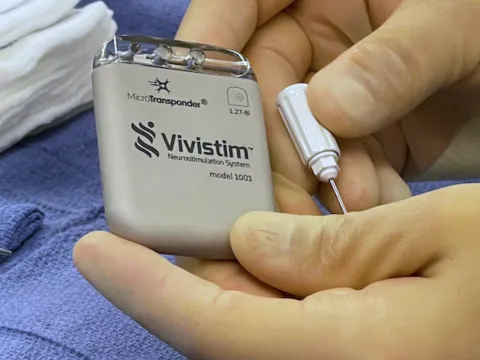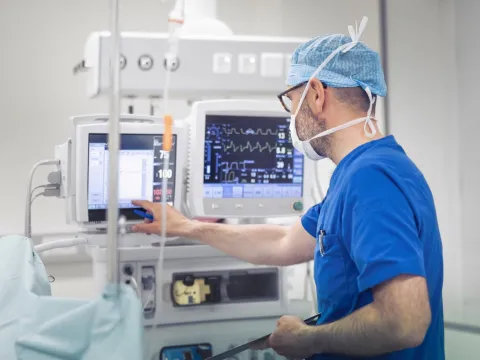- AdventHealth
The state-funded effort, known as ACCESS-T1D, is seeking children and adults who are at elevated risk.

Researchers at AdventHealth are working to tackle a growing problem – the prevalence of undiagnosed type 1 diabetes (T1D) in its early stages, in particular among the state’s underserved and minority communities -- to increase access to care.
While type 2 diabetes is more prevalent, type 1 is on the rise. Type 1 diabetes can cause diabetic ketoacidosis, a potentially deadly condition that is present in up to 60% of children at the time of diagnosis when not caught early via screening. Type 1 diabetes is associated with various acute and chronic complications, including early death.
“We have improved technology and treatments, including a new medication that can delay T1D clinical onset, and we can predict that T1D will occur,” said Dr. Anna Casu, principal investigator on the study. “But the data tell us that people from ethnic and racial minority groups or people in disadvantaged communities tend to have less access to pre-clinical screening and advanced care. We are working to change that.”

Funded by the state of Florida, the project is known as Access to Clinical Care, Education and Screening for Underserved Children and Adults with Type 1 Diabetes (ACCESS-T1D). In addition to increasing screening and treatment access, researchers plan to establish a biobank, which will help them to identify new and better biomarkers of T1D.
“We will bring screening opportunities physically closer to those who are at high risk of T1D, reducing their burden and facilitating participation, especially of underserved and disadvantaged populations, who often cannot take time off their work or family commitments to take care of themselves,” said Casu, who herself has T1D.
Researchers are seeking participants who meet at least one of the following criteria:
- One or more first- or second-degree family members (siblings, parents, cousins, aunts, uncles, grandparents) diagnosed with type 1 diabetes;
- Have other autoimmune diseases such as but not limited to celiac disease, multiple sclerosis, rheumatoid arthritis, or thyroid disease;
- Those diagnosed with other forms of diabetes but are suspected to have T1D and have been misdiagnosed.
An awareness campaign will soon be launched about the study and screening opportunities. People interested in participating can call Call407-303-7193, Call877-854-8475 or visit TRI-MD.org.
Recent News

AdventHealth Among First in U.S. to Offer IDP023-2-101 Clinical Trial for Patients with Progressive Multiple Sclerosis
The AdventHealth Neuroscience Institute is the first in Florida and one of the first in the country to begin recruiting patients with primary progressive or non-active secondary progressive multiple...

AdventHealth Research Contributed to New Method for Tracking Diet and Its Impacts on Human Health
Accurately determining food intake remains a challenge in nutrition research. A new study published in Nature Metabolism and co-authored by Dr. Corbin introduces a metagenomics-powered approach to...

Mayor Demings, AdventHealth on bridging health care gaps
Discover what’s being accomplished in Central Florida to bridge the health gap with Orange County Mayor Jerry Demings and AdventHealth’s Dr. Alric Simmonds.

Transforming lives of stroke survivors: AdventHealth, Orlando Neurosurgery first in nation to perform 50 Vivistim implant cases
Breakthrough device offers new hope for stroke survivors struggling with rehabilitation following ischemic stroke

AdventHealth Inflammatory Bowel Disease Clinic Adds Intestinal Ultrasound to Help Evaluate and Guide Treatment
Jennifer Seminerio, MD, recently became one of the first in Florida to use intestinal ultrasound (IUS) to help assess and manage treatment of patients with inflammatory bowel disease (IBD). A non...

AdventHealth Daytona Beach Surgeon First in Florida to Perform Robotic-assisted Convergent Hybrid Ablation Procedure
The Convergent Hybrid Ablation procedure has been gaining acceptance as an effective treatment option for long-standing persistent atrial fibrillation (AFib) since the CONVERGE trial data published in...
